
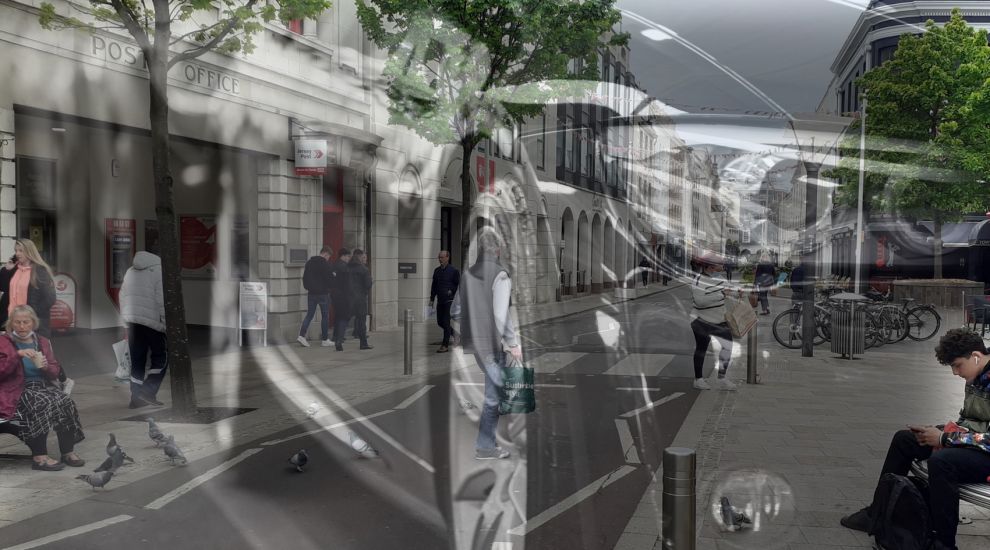

Could closing Broad Street help bring down CO2 emissions? Or is the idea a 'greenwash'? And how will this affect disabled islanders and trade?
Yesterday, States members voted to trial a ‘sustainable transport corridor’ in Broad Street, keeping the street closed to all traffic apart from buses past 11:00 until the end of the year.
The vote ‘for’ was taken by an overwhelming majority of 41 States members voting for, with only four against.
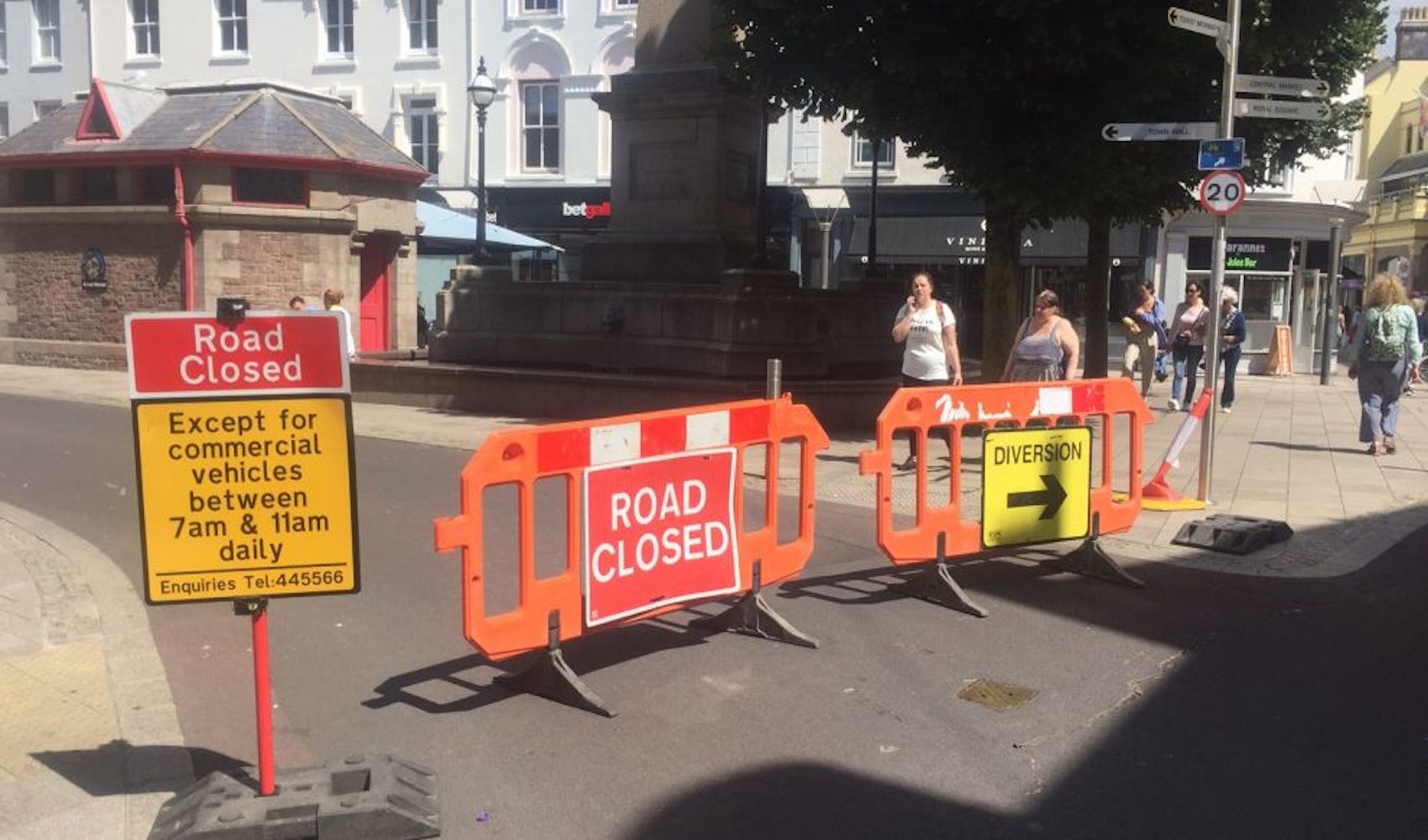
Pictured: Broad Street first became traffic free last year to allow for physical distancing in town.
Broad Street first became a traffic-free zone, past 11:00 daily, one year ago, following covid concerns over crowding in the area.
Constable Crowcroft's original idea, which would have seen this arrangement remain in place until the end of 2021 as a trial, was tweaked by Infrastructure Minister Deputy Kevin Lewis to allow buses to pass through the area too. Deputy Lewis referred to this as a 'sustainable transport corridor.'
States Members also accepted a suggestion from Deputy Inna Gardiner to ensure that extra on-street parking for disabled drivers in central town and around Broad Street, and bus services to and from the area is put in place by 31 July 2021.
The topic of Broad Street has become a divisive one throughout the past year, with Express speaking to both those strongly advocating keeping the street closed and turning it into an area for pedestrians and cyclists, and those who are adamant it should remain open.
More recently, the Chamber of Commerce also polled its retailer members, finding that almost 40% thought it would enhance the town and increase shopping and just over 60% feeling it would decrease footfall and damage business.
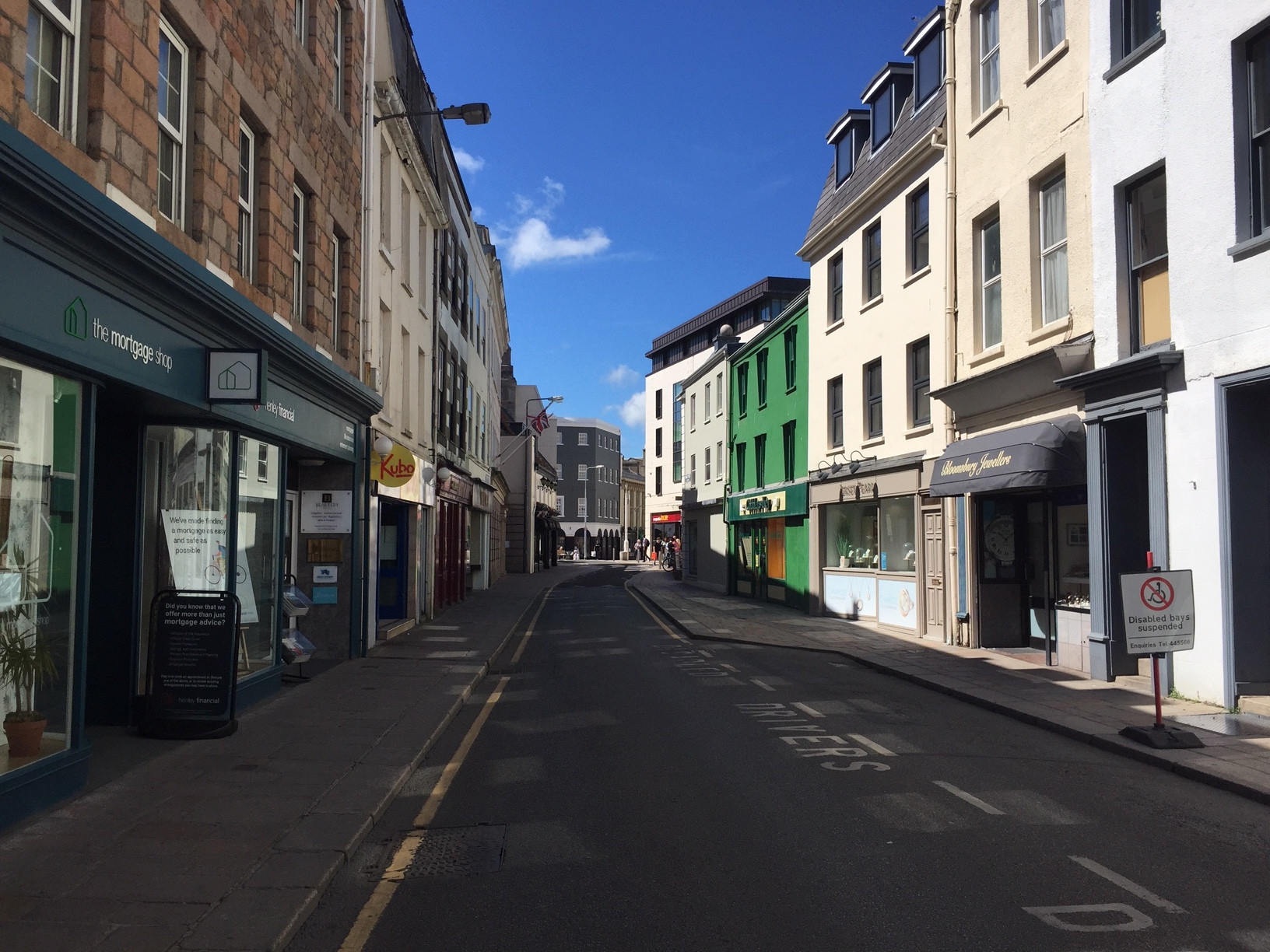
Pictured: The subject of whether the street remains closed has divided stakeholders throughout the year.
Though the eventual States Assembly vote saw a large majority in favour of the change, this division was still apparent, with the topic becoming a springboard for several areas of contention amongst members, and pointing towards wider concerns about sustainable transport policy.
Express has broken down some of the key talking points of the debate…
In past conversations about Broad Street, the disabled parking bays have been one of the top areas of contention - part of Deputy Gardiner’s amendment means that alternative provisions will have to be put in place for 31 July, which she argued meant actual action would be taken to ensure disabled provisions are safeguarded, rather than simply reviewing as was stated in the original proposition.

Pictured: Deputy Kevin Lewis argued that there were already disabled spaces in the area which the department is "always looking to increase."
On this topic, some such as Deputy Lindsay Ash argued that “we will not be making life easier for elderly and disabled people” as a result of the proposition, adding that “we often overlook the elderly in this Assembly.”
However, in response to this, Deputy Kevin Lewis argued that: “We already have disabled spaces at the moment which we always try to increase.
“We’ve got actually 34 spaces at Sand Street which is about 100 yards away, we’ve got 24 dedicated disabled spaces, plus Shopmobility have a further 10. These are reserved spaces, plus anyone with a disabled badge can park on any floor at any time, which gives 500 spaces feasibly."
He added: “I will do my very best to reach 31 July – that’s not an easy target to hit, but I will try my best.”
Deputy Graham Truscott raised this issue, saying that while he was “totally with the Constable in what he’s trying to achieve”, he had been “in touch with a number of retailers in the area, and again a lot of them feel that there hasn’t been a lot of consultation.”
He later said: “A lot of these shops, retailers, they’ve had no income and they’re very desperate to get things back to normal as quickly as possible.”
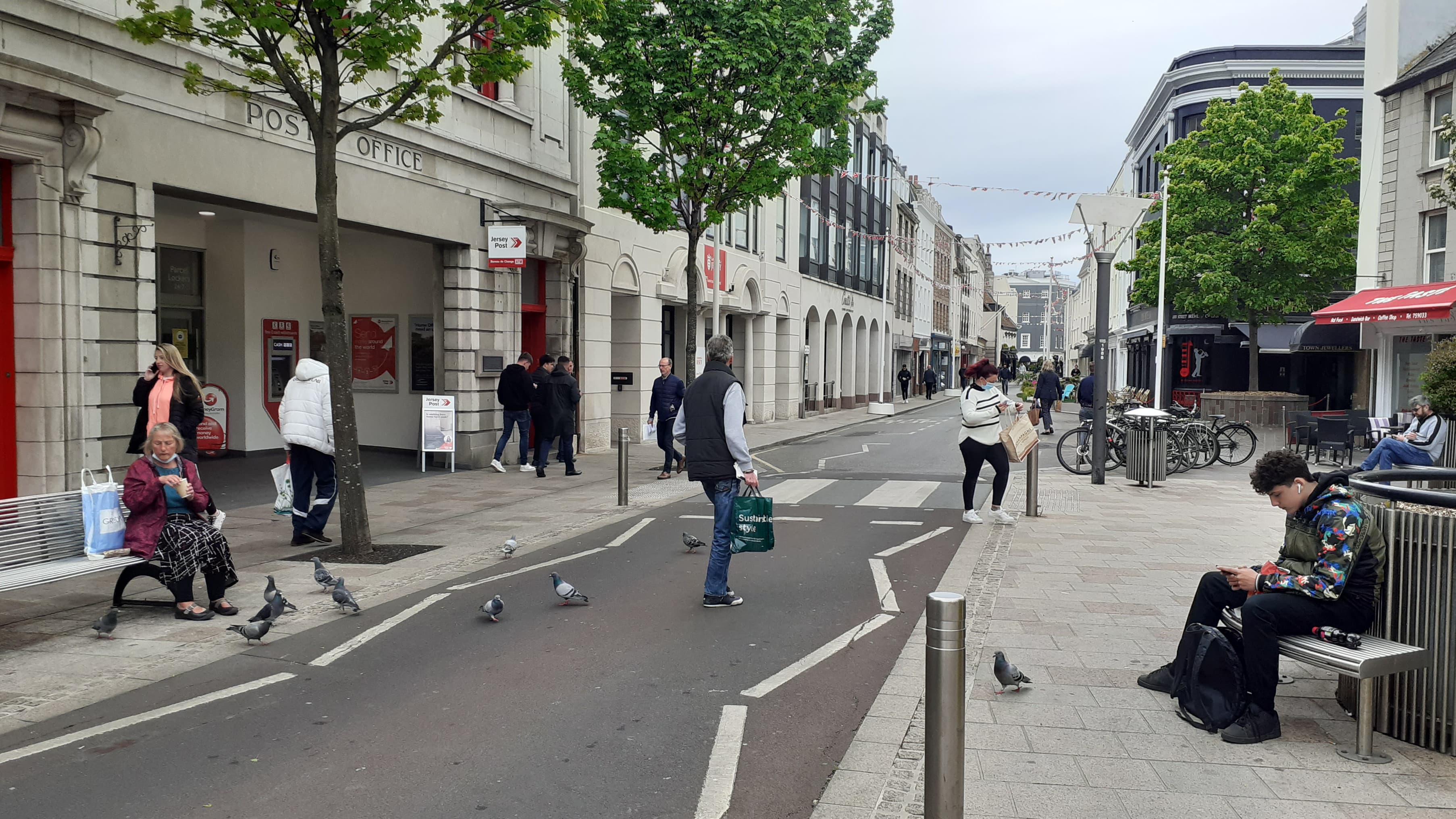
Pictured: Deputy Graham Truscott said he had been in contact with several retailers who were worried about what continued closure of the street would mean for footfall.
However, Deputy Russell Labey argued that “whenever these sort of things are proposed - and I’ve seen it in London an awful lot - the traders are very generally wary of it, and they have very often been proven wrong.
“When spaces are created, that people want to use and be in, it does generate trade.”
Though Deputy Labey expressed support for the Constable’s plans, he expressed concerns over the Infrastructure Minister’s amendment to have buses be allowed through the street - something echoed by Assistant Chief Minister Senator Lyndon Farnham, who said he was “disappointed” at the possibility of buses coming down every 15 minutes.
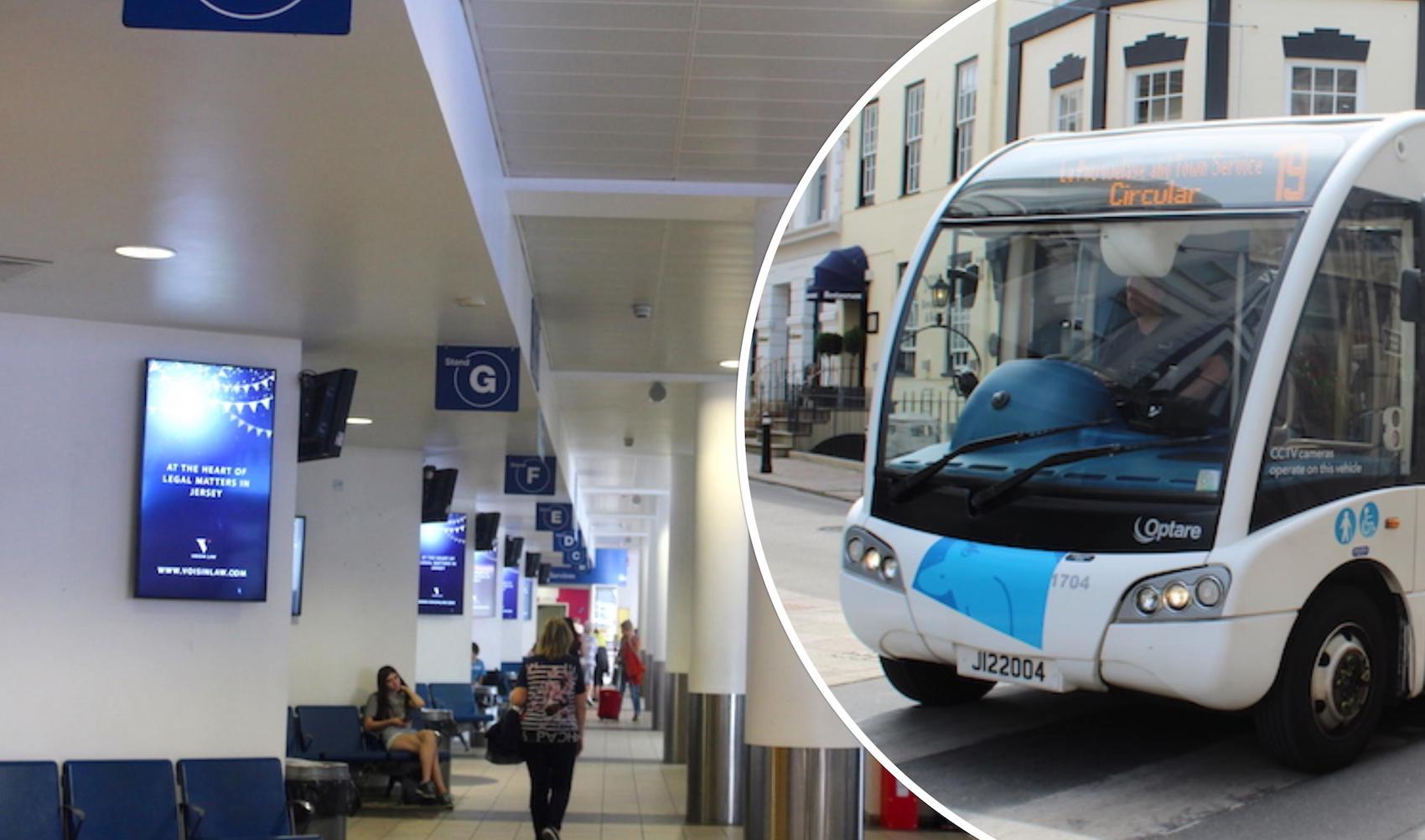
Pictured: The Chief Minister said that Broad Street would be integral to the proposed St. Helier looping bus.
The Chief Minister stood in support of keeping the buses coming down the street, pointing out the street’s role in plans for a 'St. Helier Link Bus' that would loop around key areas of town.
“One of the things that’s essentially part of this whole time period, and it is only until the end of this year, is how that route might work, and Broad Street is quite an integral one to that,” he said.
Deputy Rob Ward, who did eventually vote for the final proposition itself, expressed frustration at the vagueness of the amendments around the ‘sustainable transport corridor’ and the lack of consideration for the rest of St. Helier.
“What we seem to have here is an exercise in semantics, an exercise in just bringing forward empty words. If there has been a feature of our sustainable transport policy, it has been empty words,” the Deputy said.

Pictured: Though Deputy Rob Ward voted for the proposition, he aired frustrations that it would barely have impact on wider environmental and sustainability policy.
“What we’ve got here is a greenwash,” he explained, bringing up issues like the air quality around St. Helier’s schools, and adding that the closure of Broad Street would impact “nowhere else in St. Helier”.
He similarly expressed worries on what it would mean for other town projects, following the Infrastructure Minister’s implication that priorities and resources would be shifted.
He surmised that in future, policies should engage with a more holistic view of St. Helier, stating “we need to go for a much wider impact for our sustainable transport policy.”

Pictured: Constable Crowcroft admitted the "divisive" nature of his proposition but maintained that it would lead to a better town experience.
Similarly, St. John Constable Andy Jehan hit out at only targeting Broad Street, in what he saw as “piecemeal planning planning and making decisions without the full facts.”
He further stated that what is “urgently needed is a joined up plan backed by data, that leads to bold actions.”
However, Senator Lyndon Farnham argued against holding off for a wider plan, saying that “if we try and wait for a grand masterplan that addresses all these issues we will… be talking about this for years to come while nothing actually changes.”
On the topic of data, Deputy Kirsten Morel stated that though he had reservations about the “evidence-free” proposition, he was willing to give the trial a go based on evidence from both past pedestrianisation efforts in Jersey, and European examples.
“King Street and Queen Street… used to have traffic running through it, and now seem to be highly successful shopping streets,” he said.
He also highlighted the Spanish town of Pontevedra, where road traffic accidents had gone down as well as CO2 emissions following pedestrianisation.
While he felt there would need to be more evidence collated from the review at the end of the year, he concluded: “I don’t like the lack of evidence, but I do feel there is just enough evidence from here in St. Helier and towns like Pontevedra to tell me that it’s worth a trial, that it’s worth a go.”
Speaking earlier in the debate, the Chief Minister argued that the current closure due to the pandemic offered the perfect time to trial the idea, and that Members should embrace the action.
“This is about seizing an opportunity which that has been relatively traffic-free other than deliveries and the occasional bus for some time. If one is serious in indicating or trying to achieve any behavioural change, now is the time to do it,” he said.
In his closing remarks, Constable Crowcroft echoed this, conceding the divisive nature of the topic, saying it’s “difficult” and “divisive,” but maintaining it was a “small but very concrete step towards a better town centre experience.”
He later added of the bus amendment: "This is a trial, let’s see how it works with the buses coming through Broad Street, mindful of the fact that we won’t have all the other traffic that was using Broad Street as a convenient shortcut to avoid the ring road."
Comments
Comments on this story express the views of the commentator only, not Bailiwick Publishing. We are unable to guarantee the accuracy of any of those comments.